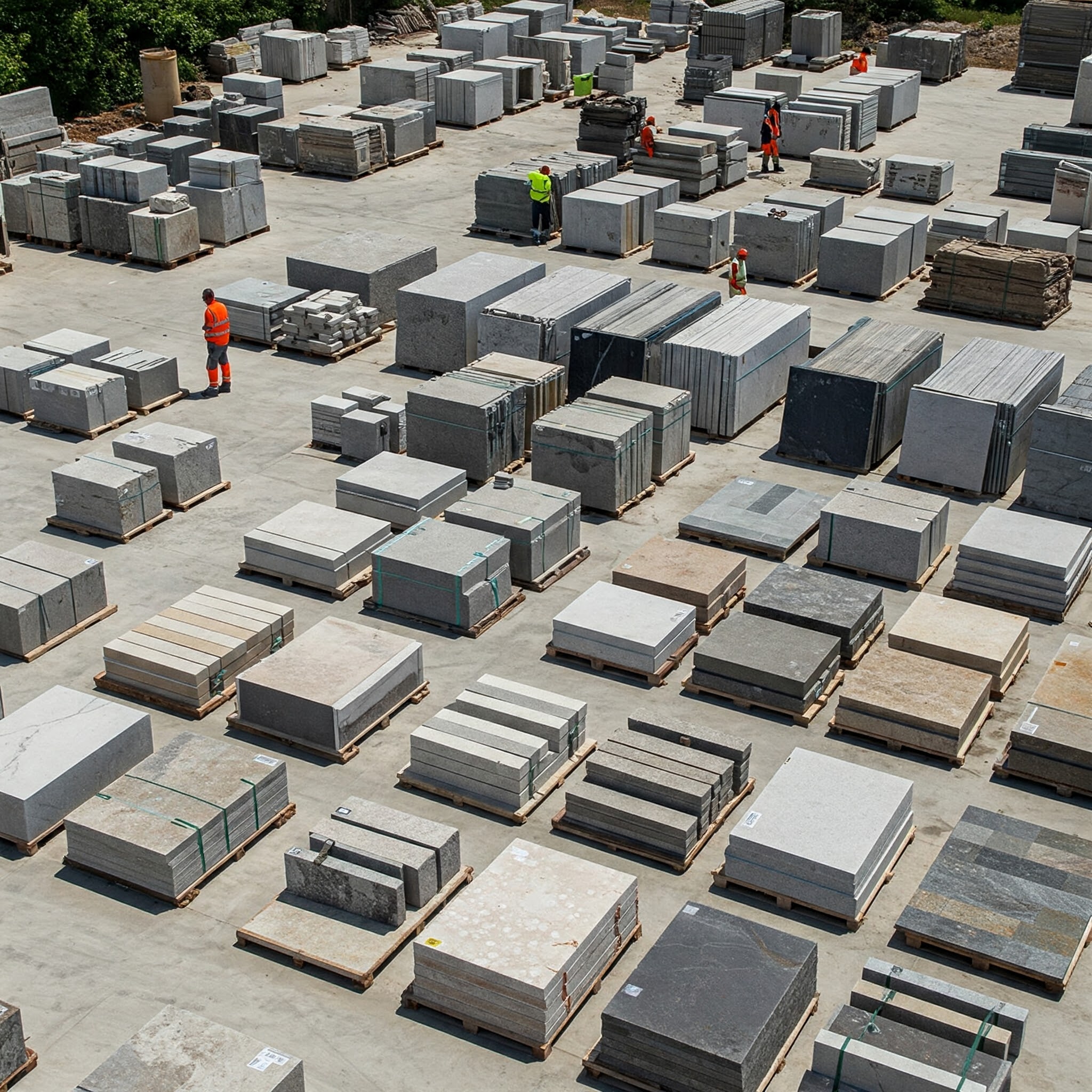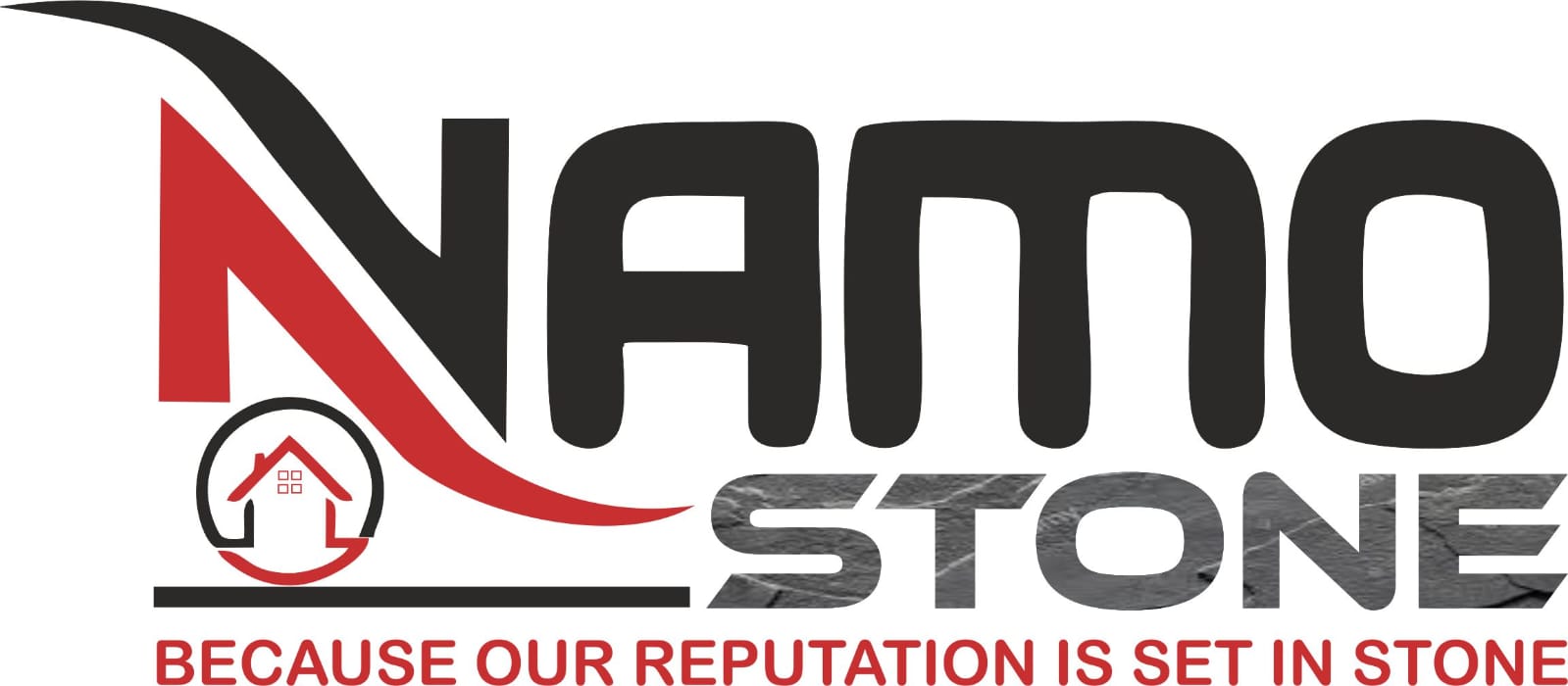Indian White Granite has emerged as one of the most popular choices in architectural designs,…

Stone Suppliers for Large-Scale Projects: Key Considerations
When it comes to large-scale construction projects, whether it’s building monumental structures, high-end residential estates, or landscaping for urban developments, choosing the right stone supplier is paramount. Stone is not only a durable and aesthetically appealing material but also one that requires expert handling, sourcing, and supply to meet the demands of such expansive projects.
From sourcing premium natural stone to ensuring timely deliveries, the decision to partner with a stone supplier involves careful thought and planning. In this article, we’ll explore key considerations when choosing a stone supplier, the different types of stones you may require, and provide pro tips to ensure smooth sourcing and quality control.
Key Considerations When Choosing a Stone Supplier for Large-Scale Projects
Selecting the best stone supplier for large-scale projects requires a deep understanding of several factors, ranging from the types of stones you need to the supplier’s reputation and logistical capabilities. Let’s break down the critical elements you should consider.
1. Quality Assurance and Sourcing
The first and most important consideration is the quality of stone that the supplier provides. Whether it’s marble, granite, limestone, or sandstone, the stone needs to be sourced ethically and meet industry standards for durability and appearance. A reputable stone supplier should be able to provide certification for the quality of stone and its sourcing.
Pro Tip:
Always request sample pieces of the stone you intend to use for your project to evaluate the texture, color, and durability before placing a large order.
2. Supply Chain Reliability
For large-scale projects, reliable supply chain management is crucial. You must ensure that the supplier has the logistics in place to handle bulk orders, deliver stones on time, and have contingency plans for unforeseen delays. Many large-scale projects operate on tight timelines, so having a stone supplier who can guarantee timely deliveries is essential.
Ask these questions to your supplier:
- How often do you restock your inventory?
- What is your average delivery time?
- Can you scale your supply according to the project size?
Fun Fact:
The largest stone supplier in the world, based in China, is responsible for over 50% of the global granite trade!
3. Experience and Reputation in the Industry
When it comes to stone suppliers, experience is key. A supplier who has been in the industry for years is likely to have the knowledge and capability to handle your project’s needs. Look for a supplier with a proven track record of supplying stone for large-scale projects, especially those of similar scope and complexity.
Pro Tip:
Research the supplier’s portfolio of previous projects and client testimonials to gauge their credibility. This will help you find a supplier who understands the intricacies of large-scale projects.
4. Customization Options
Every large-scale project comes with its own unique requirements. Whether it’s the size, finish, or color of the stone, a stone supplier who offers customization options can help you get the exact materials you need. Some projects require bespoke stone cutting, while others may need stones to be polished to a particular texture.
Fun Fact:
Custom-cut marble for grand hotels and palaces has been a luxury service for centuries, with ancient civilizations, like the Egyptians, using highly detailed stone carvings in their monumental buildings.
5. Sustainability and Environmental Impact
Sustainability has become a crucial factor in construction. Choosing a stone supplier that prioritizes eco-friendly practices, such as sustainable sourcing, reduced carbon footprint, and eco-conscious packaging, can give your project a positive environmental impact. Stones like granite, which are mined with less environmental disruption, can help reduce your project’s overall carbon footprint.
Check for these eco-friendly certifications:
- FSC (Forest Stewardship Council) for sustainable sourcing
- ISO 14001 Environmental Management Certification
6. Cost Efficiency and Budget Considerations
While cost should never compromise quality, it’s important to choose a stone supplier who offers competitive prices while meeting your project’s quality standards. Stone is often a high-cost material, and large-scale projects require substantial budgets, so finding a supplier who can provide cost-effective options without compromising on quality is critical.
Pro Tip:
Request multiple quotes from suppliers and analyze their cost breakdowns to ensure transparency. Also, check if bulk discounts or long-term contract terms can save costs.

Types of Stones Commonly Used in Large-Scale Projects
When choosing a stone supplier, understanding the types of stones used in large-scale projects can help you make better decisions. Let’s explore the most common types of stone used.
Granite
Granite is one of the most popular stones used in large-scale projects. It is highly durable, heat-resistant, and offers an aesthetically pleasing finish. It’s commonly used for countertops, facades, flooring, and even outdoor landscaping.
Key Characteristics:
- Durable
- Available in various colors and finishes
- Perfect for high-traffic areas
Marble
Marble is synonymous with luxury and opulence. Its sophisticated finish and variety of colors make it perfect for high-end residential buildings, luxury hotels, and monuments. However, marble requires more maintenance than granite due to its porous nature.
Key Characteristics:
- Elegant and polished finish
- Ideal for interior design
- Prone to scratching and staining
Limestone
Limestone is a soft and versatile stone that is often used in landscaping, paving, and cladding. It is eco-friendly, easy to work with, and comes in a variety of colors and textures.
Key Characteristics:
- Soft and easy to cut
- Ideal for rustic, natural designs
- Affordable compared to other stones
Sandstone
Sandstone is perfect for creating an earthy, rustic look in large-scale landscaping or architectural projects. It’s durable and resistant to wear and tear, making it ideal for both interior and exterior projects.
Key Characteristics:
- Easy to cut and shape
- Aesthetic warmth and texture
- Ideal for outdoor projects
Frequently Asked Questions About Stone Suppliers
1. How do I find the best stone supplier for large-scale projects?
Start by researching local and global suppliers with experience in large-scale projects. Look for reviews, past projects, and transparency in pricing.
2. What certifications should I look for in a stone supplier?
Look for certifications like ISO 9001 (quality management) and ISO 14001 (environmental management). These ensure the supplier follows industry standards and environmental best practices.
3. How much does stone cost for large projects?
The cost of stone varies depending on the type, finish, and supplier. Expect a premium for exotic stones like marble and high-end granite. However, cost-effective options such as limestone and sandstone can also meet budgetary needs.
Pro Tips for Working with Stone Suppliers
- Negotiate Long-Term Contracts: If your project spans over months or years, consider negotiating a long-term contract to lock in pricing and secure steady supply.
- Inspect Delivered Stone: Upon delivery, inspect the stones for defects, cracks, and mismatches before installation.
- Consider Transportation Costs: Heavy stones incur high transportation costs, so work with a supplier who offers delivery options at competitive rates.
Chart: Comparison of Popular Stone Types
| Stone Type | Durability | Common Uses | Maintenance | Cost |
|---|---|---|---|---|
| Granite | Very High | Countertops, Facades | Low | $$$$$ |
| Marble | Medium | Luxury Interiors | High | $$$$$$ |
| Limestone | Medium | Landscaping, Paving | Medium | $$ |
| Sandstone | Medium | Landscaping, Cladding | Medium | $$ |
Conclusion
Choosing the right stone supplier for large-scale projects is a pivotal decision that impacts the project’s overall success. Quality, reliability, cost, and sustainability all play significant roles in making the right choice. By considering all the factors above, you’ll be better equipped to select a supplier who meets your needs and ensures that your project is completed on time and to the highest standards.
Don’t forget to visit Namo Stone for premium stone sourcing and to learn more about our services.
For more detailed information about stone and government standards for stone use in construction, visit the National Stone Institute.




This Post Has 0 Comments